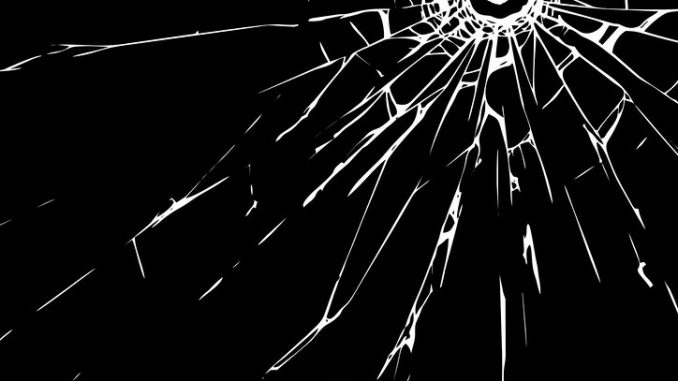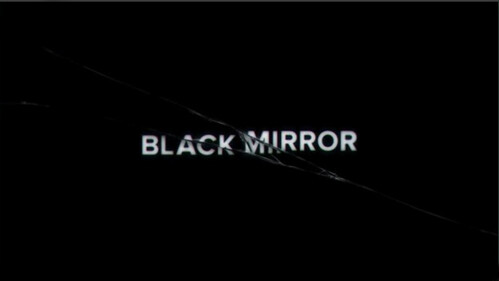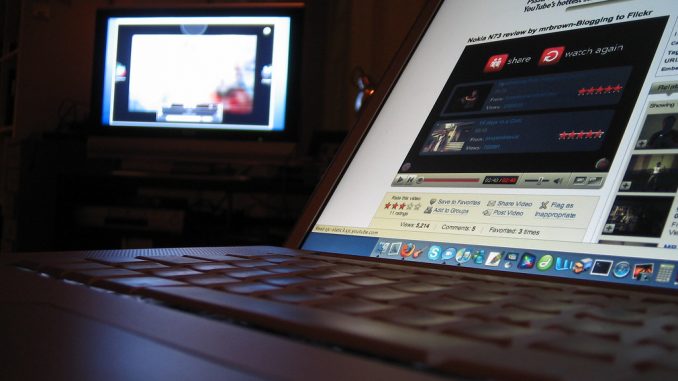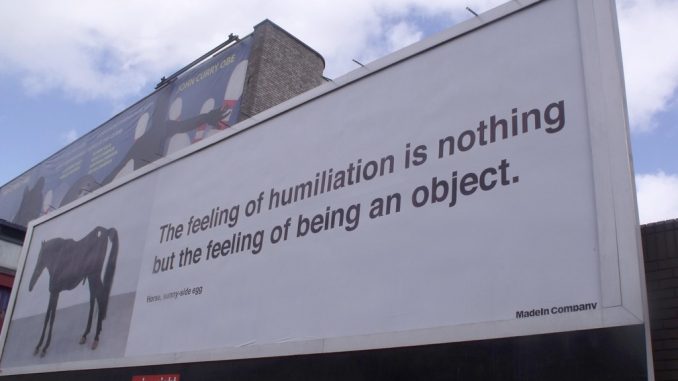

“When the screen is off, it looks like a black mirror, and people see themselves in the reflection” (Brooker, 2014). As a TV series in which each episode tells a different story about the relationship between humans and technology, Black Mirror (created for the most part by Charlie Brooker and heavily produced by executive producer Annabel Jones, was released initially on Channel 4 in the UK in 2011). Mainstream media describes Black Mirror as a TV series that entertains and alerts us to consider how technology might harm society and change our behaviour. The primary focus of Black Mirror: The National Anthem was that Individuals are addicted to the internet, losing their basic thinking skills and value judgments, numb to the real world and the truth of things, satirising the social connection between media, politics and individuals in the form of anti-utopia. Black Mirror takes a different perspective, whether the government should regulate the press, whether the media is “ethical”, and whether individuals are being influenced by the internet and becoming rabble-rouser.
Internet and government

Unregulated platforms pose a significant threat to democracy in terms of information disruption. The freedom of the internet leads to the innovation of different platforms. Without regulations, social media has brought information into direct contact with its audience, but the benefits and drawbacks are obvious; restricted information such as pornography, violence and illegality can be hazardous. The fantasy of a fully “open” platform is attractive, echoing deep, utopian notions of community and democracy, but it is more likely to be a delusion. There is not a platform out there that does not impose rules to some extent (Gillespie, 2018). The dialogue in Black Mirror, “This came from YouTube”, “Fucking internet”, indicates it is impossible to block the information since the timeliness of the internet allows for the wide dissemination of anything at the moment, and that matters. The video in the film is a contemporary incarnation of atrocities on social media platforms that circulate offer a degree of provocation to the government. According to José van Dijck’s observation, “The nature of our relationships, creations, and interactions is being radically altered by programmed frameworks.” Regulation shapes media networks as tools, institutions and cultural phenomena, while online platforms further shape public discourse (Gillespie, 2018).

However, regulate the internet is challenging because the world is nearly indefinitely complicated. It is impossible to offer unambiguous guidelines regarding what is and is not permissible in all instances (Rodríguez, 2018). For the current example, according to BBC News, more than a quarter of the most viewed coronavirus videos on YouTube contained “misleading or inaccurate information”, which provide erroneous explanations to frightened people looking for quick solutions or someone to blame. One of these claims is that a vaccine for coronavirus has been created but refused to be sold. According to the research, governments and health authorities should engage with entertainment news outlets and social media influencers to create more appealing, factual information that is more widely viewed (BBC News, 2021). There is no denying that there is still a long process of progress in regulating the online environment and content. Moderation necessitates a significant amount of time and effort, complaints must be handled, edge cases or behaviour must be assessed, penalties must be enforced, and appeals must be examined (Gillespie, 2018).
Internet and media

Black Mirror exposes the authenticity of social media from both a media perspective and a government perspective. In the days of online information, it is not easy to distinguish between true and false news. By creating information that may be considered disinformation, the media changes what it means to be informed. Misinformation is not the same as disinformation. It refers to knowledge that is misleading information that gives the impression of knowing something but leads one away from it (Postman, 1985). In the film, the backup plan and the video photoshopping plan for the prime minister’s video having sex with the pig that government members proposed illustrates the unreliability of the internet information alludes to the fact that any content can be false.
Why people fall for Misinformation?
Moreover, when the kidnapper had sent a chopped-off finger with a video to the press, they ignored the truth. They released the unconfirmed information before the DNA test results were available. It is worth noting that this misinformation all has a common purpose – to manipulate the audience. Consistent with research in mass media theory (Buechler, 2013), The audience is perceived as an isolated being, and the agenda-setting works best when outside voices easily manipulate the audience. When the media selectively highlights specific events and gives them prominence, the media will no longer guide the audience’s thinking. However, they will directly tell and influence the audience what to think. The media has no intention of implying that any event has any ramifications. It would require viewers to think about it after it is over, obstructing their attention to the next topic (Postman, 1985). The unconfirmed news in the film brought great harm to ‘Prime Minister’ and his family through the oppression of public opinion, but at the same time rose support. The film effectively presents the advantages and disadvantages of misleading news or false news. As people move toward a more automated world, the responsibility to understand society’s real issues should not be handed to machines. Whether offline or online, media outlets must be honest, fair, and positive in reporting politics but not ignore their audiences (White,2020). The message that Black Mirror articulates to viewers is that when the widespread vicious lies and the ineffectiveness of truth-checking challenge the cornerstone of journalistic ethics, namely that facts are fundamental to democracy and that people should be fully briefed before making important decisions (White,2020).
Internet and Individuals

The people are the rabble, using the internet as cover. The internet will destroy and weaken social relationships, lowering the quality of social interaction (Quaglio & Millar, 2020). Through the network, any action or speech of the public does not have to be responsible for the event’s outcome, accompanied by the disappearance of sensibility and empathy. The message is that “we love the humiliation. We cannot laugh, ” with polls ranging from 28% at first to 86% later. Here, the film highlights polling street interviews, with split screens showing different perspectives; “Just thinking about it is horrible.” and “Anyone else getting in the popcorn?” the distorted expectations of the people have created invisible violence. In Black Mirror, the ‘Prime Minister’ is an unfortunate politician and a symbol of a society’s morality lost in internet violence. The film amplifies the authoritative representation of government that polls have oppressed in social media and the social phenomenon that people have made politics entertaining. “People are not only deprived of real facts when news is packaged as entertainment, but they also lose their sense of what it is to be properly informed” (quoting Postman).

When the “kidnapper” is revealed in the film, he is also known as the “artist”. The film’s message is “Bloom’s dark vision accuses us all”. The kidnapper is the silhouette of a rebellion against the supremacy of the internet and entertainment. His room contains only an old television and his suicide results from despair at society’s indifference. In the Internet era, the massive influx of information and its dissipation become the characteristics of society. According to Postman, “when cultural activities are redefined as a never-ending round of amusements, when severe public discourse is reduced to nonsense and when, in short, their public business became to a vaudeville act. People are the audiences, and the nation is put in danger”(Postman, 1985).
Conclusion
The message of Black Mirror: The National Anthem is that the message communicated through the internet is one-sided. The sender has brainwashed the audience through the weaknesses of the internet, limiting them to a particular aspect and making generalisations. Black Mirror is a satirical way to make society confront their humanity amidst the flood of the internet. The network invaded reality so that virtual and real no longer have boundaries. Black Mirror has brought some critical voices to the public, challenging the harmful effects of the development of the internet. People are more easily chastised or disgraced than in the previous era of mass communication (Hirshberg, 2014). The insinuation succeeds in drawing attention to the multifaceted issues of the internet. The audience was creating media, turning rumours into what appeared to be facts but were not, and doing it at such a rapid pace that facts were thrown out of the news cycle for hours that day (Kang,2013). Throughout the film, the tone is dark, with what appears to be a perfect ending, as people continue the tragedy and the obsession with media and the internet. Black Mirror hints at how the media and the internet have no moral ground to exploit the audience with sensational news. The media is everywhere, and people are becoming numb to it (Hirshberg, 2014). The film indicates that people have to resist their attachment to virtual things and focus on real life. The kidnappers liberate Princess Susannah thirty minutes before the Prime Minister’s live broadcast in the final scene. However, people are keen on the brutal internet atrocities. The film raises the awareness of the need for the government to regulate the platform and for the media to confirm the truthfulness of the news instead of misleading information or fake news.

References
BBC News. (2021). Coronavirus: False claims viewed by millions on YouTube. BBC News. Retrieved 17 October 2021, from https://www.bbc.com/news/technology-52662348.
Buechler, S. (2013). Mass Society Theory. The Wiley-Blackwell Encyclopedia Of Social And Political Movements, 1. https://doi.org/10.1002/9780470674871.wbespm473
Dijck, J. (2013). The culture of connectivity: A Critical History of Social Media (pp. 41-58). Oxford University Press.
Gillespie, T. (2018). CHAPTER 1. All Platforms Moderate. In Custodians of the Internet: Platforms, Content Moderation, and the Hidden Decisions That Shape Social Media (pp. 1-23). New Haven: Yale University Press. https://doi-org.ezproxy.library.sydney.edu.au/10.12987/9780300235029-001
Gillespie, T. (2010). The politics of ‘platforms’. New Media & Society, 12(3), 347-364. https://doi.org/10.1177/1461444809342738
Hirshberg, P. (2014). Change: 19 Key Essays on How the Internet Is Changing Our Lives (6th ed.). BBVA.
Isaac, J. (2020). Why people fall for misinformation [Video]. Retrieved 17 October 2021, from https://www.youtube.com/watch?v=hz6GULbowAk.
Kang, J. (2021). Should Reddit Be Blamed for the Spreading of a Smear?. Retrieved 17 October 2021, from http://www.nytimes.com/2013/07/28/magazine/should-reddit-be-blamed-for-the-spreading-of-a-smear.html?pagewanted=1&_r=1.
Postman, N. (1985). Amusing ourselves to death (p. 75-120). Penguin Group Penguin books USAInc.
Quaglio, G., & Millar, S. (2020). Potentially negative effects of internet use (p. 23). European Parliamentary Research Service.
Rodríguez, F. (2018). The Age of Perplexity: Rethinking the World We Knew. BBVA-Openmind.
Tumber, H., & Waisbord, S. (2017). The Routledge companion to media and human rights (1st ed., pp. 95-103). Routledge.
Vaidhyanathan, S. (2011). The Googlization of everything. University of California Press.
White, A. (2020). Ethics in the News – Fake News and Facts in the Post-Truth Era. Ethical Journalism Network. Retrieved 17 October 2021, from https://ethicaljournalismnetwork.org/fake-news.

This work is licensed under a Creative Commons Attribution 4.0 International License.
Tutorial group: #14
Class: 06
Tutor: DR SU
Name/Student ID: JiaWen Yin (490072280)